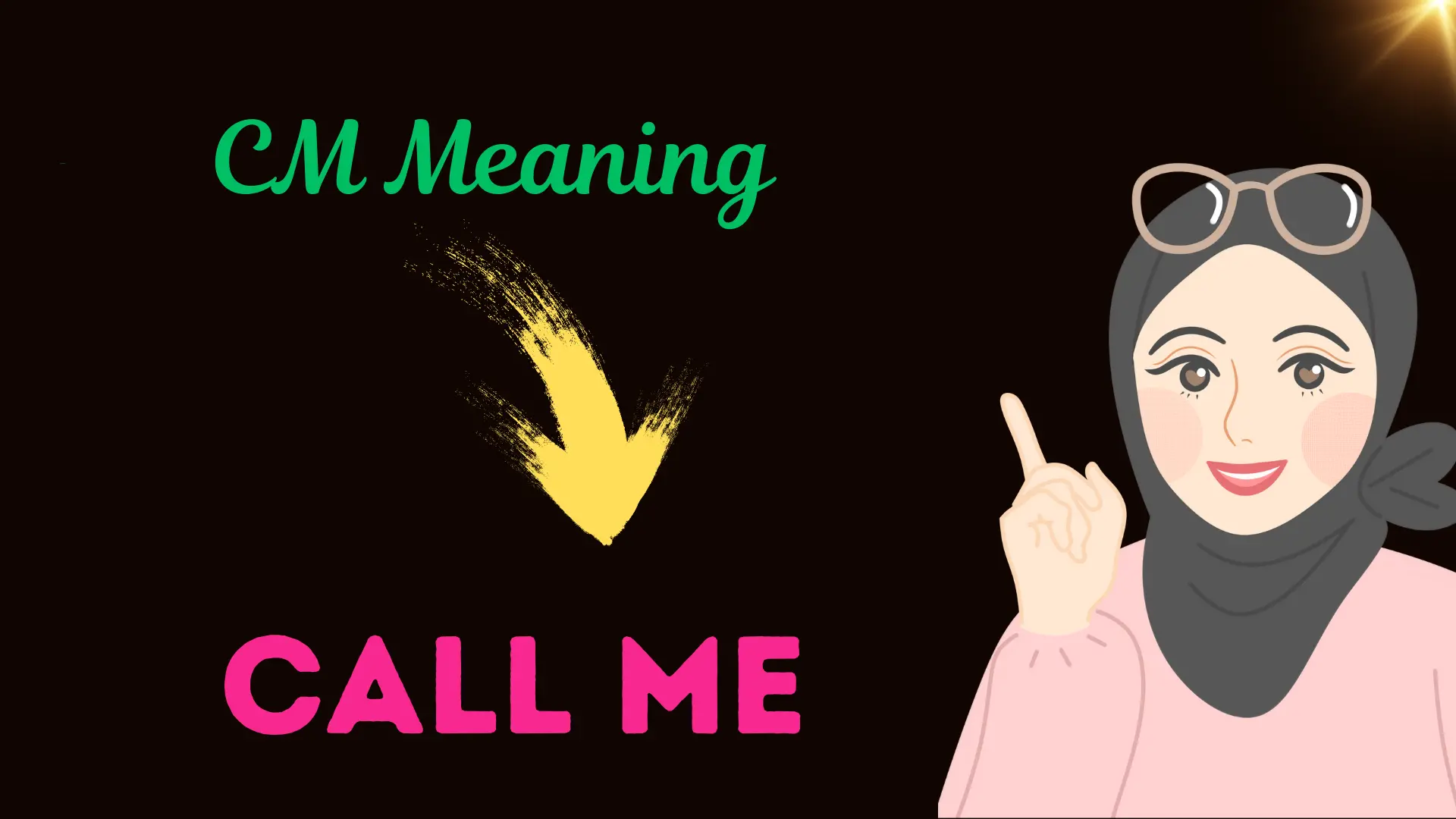Last updated on October 6th, 2025 at 10:21 am
If you’ve ever come across CM in text messages, Instagram captions, or online chats, you’ve probably wondered: What does CM mean? The answer isn’t as simple as you think—because CM meaning in text changes depending on the context.
For some, it means “Call Me”, while on Instagram it often stands for “Comment.” In schools, it can mean Centimeter, and in workplaces, it may stand for Content Manager. With so many variations, no wonder people are searching for its true meaning every day.
This guide will break down all possible meanings of CM in text, explain why it’s used, explore its role in love, friendships, and cultural contexts like Tagalog, and give you professional alternatives to use instead of CM.
What Does “CM” Stand For in Text?
The most popular definition of CM in text is “Call Me.” People use it to save time and express urgency in conversations. However, it’s far from the only meaning.
Quick Breakdown of CM Meanings:
- Call Me – texting shorthand for quick communication.
- Comment – used widely on Instagram, Facebook, and TikTok.
- Centimeter – a measurement in schools and academic chats.
- Content Manager – workplace abbreviation.
- Check Message – less common but still in use.
Info Chart: CM Meanings Across Contexts
| Context | CM Meaning | Example in Use |
|---|---|---|
| Text Messaging | Call Me | “Busy now, CM later.” |
| Social Media | Comment | “CM your thoughts below.” |
| School/Academics | Centimeter | “The table is 75 cm tall.” |
| Workplace | Content Manager | “Ask the CM to approve this draft.” |
| Tagalog Conversations | Call Me | “CM after class, tawag ka.” |
| From Friends | Call Me / Comment | “CM when you’re done.” |
| From a Boy/Girl | Call Me | “CM, need to talk to you.” |
Why Do People Use “CM” in Text?
People rely on CM because:
- It saves time – typing two letters is faster than full phrases.
- It’s casual and friendly – perfect for texting culture.
- It works in multiple contexts – from social media to schools.
- It’s universal – easy to understand globally.
CM Meaning Social Media
On Instagram, TikTok, and Facebook, CM usually stands for “Comment.” Examples:
- “CM below if you agree.”
- “CM your favorite emoji.”
Creators use it to increase engagement without typing long captions.
CM Meaning in Love
In love and relationships, CM almost always means “Call Me.”
When your partner or crush sends CM, it could signal:
- Urgency (they want to hear your voice).
- Intimacy (a call feels more personal than text).
- Care (they want deeper connection).
CM Meaning in Chat Tagalog
In the Philippines, CM = Call Me.
Example:
- “Busy ako now, CM later.” (I’m busy now, call me later.)
It blends naturally in Taglish (Tagalog + English) conversations.
CM Meaning in Text from a Boy
When a boy texts CM, it typically means he wants to talk more directly. It could be:
- Serious – to discuss something important.
- Casual – just wants to hear your voice.
- Romantic – showing interest or affection.
CM Meaning in Friends
Among friends, CM works casually:
- “CM when you’re free.”
- “CM after class.”
- “CM later, let’s plan.”
It’s shorthand for staying connected.
CM Meaning Instagram
On Instagram, CM = Comment. Influencers and creators use it often:
- “CM your favorite travel destination.”
- “CM below for the giveaway.”
It’s part of Instagram’s engagement strategy.
CM Meaning in School
In educational settings, CM = Centimeter.
Example:
- “The box is 20 cm long.”
Students and teachers use it frequently in math and science.
CM Meaning in Chat from a Girl
If a girl texts you CM, it most often means “Call Me.” The tone can reveal whether it’s casual, caring, or affectionate.
When Is It Appropriate to Use “CM”?
- Casual texting – friends, family, partners.
- Quick reminders – “CM later.”
- Social media posts – “CM below.”
Not recommended in professional communication (explained later).
Polite, Professional, and Casual Alternatives to “CM”
Instead of CM, try these clearer alternatives:
- Could you give me a call when you’re free?
- Feel free to call me at your convenience.
- Let’s talk when you have a moment.
- Call me when you’re ready.
- Can we catch up over the phone?
- Are you available for a quick call?
- Mind giving me a ring later?
- Let’s have a quick phone chat.
- Can we talk on the phone later today?
- Would love to talk—give me a call.
- Give me a buzz when you’re around.
- Ping me for a quick call.
- Let’s sync via phone.
- Give me a shout when you’re done.
- I’d appreciate a call when you have a moment.
Tone Matters: Choosing the Right Alternative
- Professional – “Feel free to call me at your convenience.”
- Friendly – “Give me a buzz when you’re around.”
- Romantic – “Would love to talk—give me a call.”
Why You Should Avoid Using “CM” in Professional Communication
- It looks unprofessional.
- It can confuse clients or colleagues.
- Full sentences show clarity and respect.
How to Transition from Casual to Professional Communication
- Replace abbreviations with full words.
- Adjust tone based on the relationship.
- Use polite alternatives like “Let’s schedule a call.”
Cultural and Regional Variations of CM
- Philippines/Tagalog – Call Me
- Western Social Media – Comment
- Academic Contexts – Centimeter
- Workplace/Tech – Content Manager
FAQs
What does CM mean in text from a guy?
It usually means Call Me, showing urgency or interest.
What does CM mean on Instagram?
On Instagram, CM = Comment.
Is CM professional to use?
No, avoid it in business communication.
Can CM mean Centimeter?
Yes, in school or academic contexts.
Do girls use CM differently?
No, but the tone may add affection.
Is CM the same in all countries?
No, cultural differences matter (e.g., Tagalog vs. English usage).
Conclusion: Mastering the Art of Using CM in Text
The abbreviation CM in text is simple but versatile. From “Call Me” in love and friendships to “Comment” on Instagram or “Centimeter” in school, its meaning depends entirely on context.
While it works perfectly for casual conversations, avoid using it in professional settings. Instead, use clear and polite alternatives like “Could you give me a call when you’re free?” That way, you keep your communication both effective and professional.




